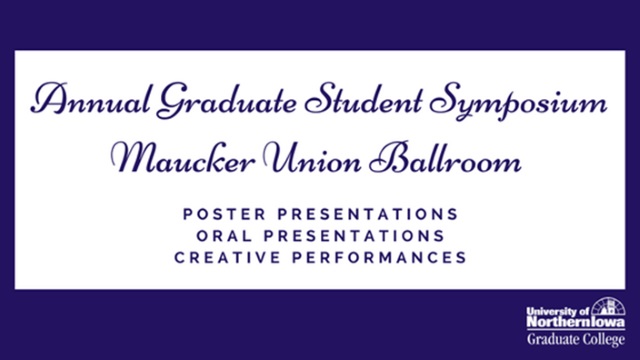
Complete Schedule
Award Winner

Recipient of the 11th Annual Graduate Student Symposium Scholarship Award, Oral Presentations, University Room - Second Place (2018)
To go to the Graduate Student Symposium event page, Click here
Presentation Type
Open Access Oral Presentation
Keywords
Cheating (Education)--Malawi;
Abstract
Examinations are generally accepted as the best means of assessment. Unfortunately, means of assessing students may be ineffective since multiple forms of examination malpractice have been introduced into the system. While cheating on examinations is quite a common, victimless crime that may not be considered very serious individually, accumulated cheating on high stakes examinations assumes greater social importance.
The purpose of this study was to examine perceived causes and methods of examination malpractice in the Malawian education system. The target population of the study comprised of secondary school teachers and students in South East Education Division in Malawi from ten secondary schools. The sample study included 200 respondents. The quantitative survey data was analyzed using the Importance Performance Analysis. The qualitative focus group data was analyzed by themes using open, axial, and selective coding processes.
The findings indicated personal, social, psychological and environmental causes of examination malpractice. Cheating methods included individual and collaborative cheating, such as bringing prepared answers to examination halls or using sign language during examination.
The findings indicated personal, social, psychological and environmental causes of examination malpractice. Cheating methods included individual and collaborative cheating, such as bringing prepared answers to examination halls or using sign language during examination.
Start Date
3-4-2018 1:00 PM
End Date
3-4-2018 4:00 PM
Year of Award
2018 Award
Faculty Advisor
Susan Alborn-Yilek
Department
Department of Educational Leadership and Postsecondary Education
Copyright
©2018 Fiddelis Makaula
File Format
application/pdf
Embargo Date
3-9-2025
Perceived Causes and Methods of Examination Malpractice in the Malawian Education System: A Case Study of Secondary Schools in South East Education Division (SEED)
Examinations are generally accepted as the best means of assessment. Unfortunately, means of assessing students may be ineffective since multiple forms of examination malpractice have been introduced into the system. While cheating on examinations is quite a common, victimless crime that may not be considered very serious individually, accumulated cheating on high stakes examinations assumes greater social importance.
The purpose of this study was to examine perceived causes and methods of examination malpractice in the Malawian education system. The target population of the study comprised of secondary school teachers and students in South East Education Division in Malawi from ten secondary schools. The sample study included 200 respondents. The quantitative survey data was analyzed using the Importance Performance Analysis. The qualitative focus group data was analyzed by themes using open, axial, and selective coding processes.
The findings indicated personal, social, psychological and environmental causes of examination malpractice. Cheating methods included individual and collaborative cheating, such as bringing prepared answers to examination halls or using sign language during examination.
The findings indicated personal, social, psychological and environmental causes of examination malpractice. Cheating methods included individual and collaborative cheating, such as bringing prepared answers to examination halls or using sign language during examination.


